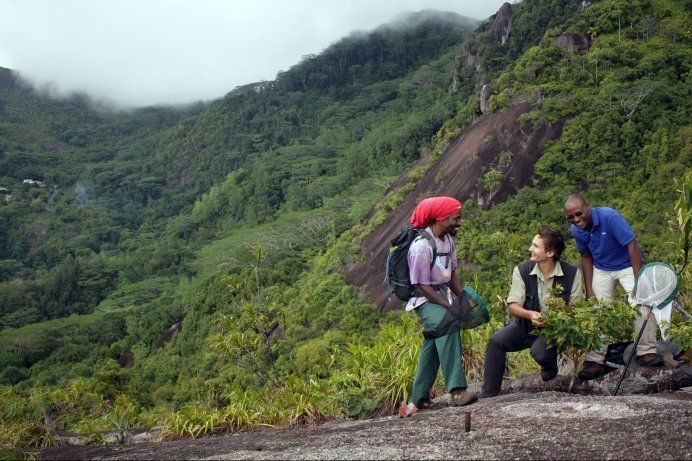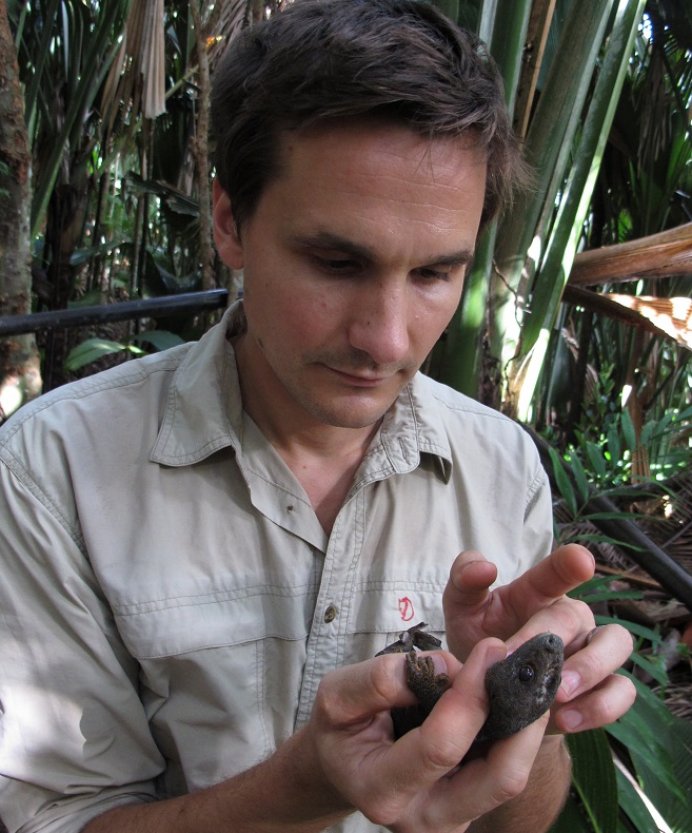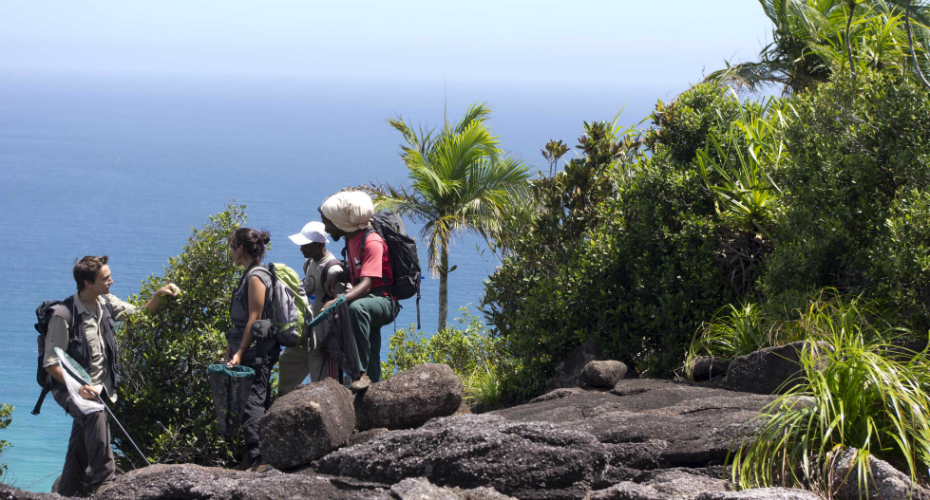Understanding our Earth’s ecosystems: Dr Christopher Kaiser-Bunbury, Senior Lecturer in Conservation & Ecology
The human impact on ecosystems around the world is widespread and destructive, but one academic is looking to turn the tide, by assessing ecosystem responses to change, and finding solutions to some of the urgent questions being asked about ecosystem ecology and conservation.
Dr Chris Kaiser-Bunbury, Senior Lecturer in Conservation & Ecology at our Penryn Campus, uses community ecology theory to address these questions. Chris is clear that human behaviour lies at the centre of change within ecosystems, and that humans are therefore key players within ecosystems. He passionately believes that, in order to understand the complexities of natural ecosystems and their responses to change, we must have a detailed knowledge of how humans influence interactions between species.
To this end, Chris has spent years researching endemic plant communities on mountain tops and ancient coco de mer dominated palm forest in the Seychelles. Tropical islands make very good research sites as they are easier to study, relatively isolated, and have an abundance of unique flora and fauna. Ecosystems are very complex and need to be studied in the field, as they cannot be properly replicated in labs – this is why Chris’s work involves manipulating large areas (possibly several hectares) of forest, and studying the ecosystem’s response to learn how it collapses and repairs. Chris uses a “network approach” to study species-to-species interactions – this approach helps to measure the complexity of interactions between all species and how they overlap and interact with each other, either directly or indirectly. These experiments help to study the response of the network to (mostly) anthropogenic disturbance, so that we can learn what the early signs of a collapse are, and therefore use this knowledge to stop it. This is not always an easy proposition, and whilst patterns are beginning to emerge in the research, Chris is clear that when you work with nature in this way, there’s bound to be some complex patterns in the data.
In order to advance his research, Chris works closely with local communities in the Seychelles. It can takes years to cultivate trusted relationships with people, and Chris is very clear that in order to make a difference in this way, you have to make sacrifices and compromises in your own life. By including local communities, they can address the urgent ecology and conservation challenges together – certainly, conservation needs to go hand-in-hand with this approach, in order for real positive change to come about. Working with the Seychelles National Parks Authority and the Seychelles Islands Foundation, there is a focus on managing native biodiversity in a sustainable way, whilst also putting into place long-term solutions to problems such as invasive alien species, poaching and habitat degradation.
Chris believes that a grass-roots, bottom-up approach is the only way to progress. Around the country and the world, communities need to set up their own communal solutions to improve the environment (be they beach cleans, wildflower planting, recycling and so on), rather than waiting for a top-down solution from Government. Solutions also need to engage all in society – certainly Chris believes that supporting female leaders and having more female leads in conservation organisations is essential if we are to solve the environmental challenges together.



